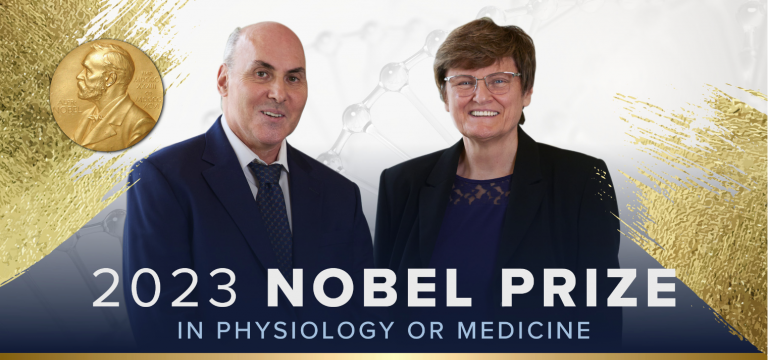RNA Symposium March 31 to focus on personalized medicine (University Record)
March 23, 2017
Topic: Health & Medicine, Research
Leading researchers in personalized medicine diagnostics, therapeutics and health care with a focus on RNA will gather at the University of Michigan on March 31 for the annual RNA Symposium sponsored by the U-M Center for RNA Biomedicine.
RNA (ribonucleic acid) is known as the molecule that carries the DNA blueprint for proteins to the protein-making machinery in the human cell. However, most of our genetic makeup, the genome, encodes RNAs with novel functions not yet discovered. In fact, only less than 2 percent of our genome encodes those RNAs that make proteins. Other RNAs respond to and can capture environmental changes over an individual’s lifespan and often change how the DNA blueprints are used in our bodies, alterations called epigenetics.
Personalized or precision medicine aims to tailor medical treatments for individual patients based on specific illnesses, genetics and environments they have encountered, an effort boosted by the federal Precision Medicine Initiative and endorsed by President Mark Schlissel. RNAs have been implicated in cancer and most other diseases, and play a towering role in cellular function.
Speakers at this year’s symposium will highlight ways to use RNA information to target and treat diseases.
• Thomas Tuschl, from Rockefeller University, will discuss using RNA sequencing strategies as a tool for diagnosing diseases.
• Muneesh Tewari, Ray and Ruth Anderson-Laurence M. Sprague Memorial Research Professor and professor of internal medicine, U-M Medical School; and professor of biomedical engineering, Medical School and College of Engineering, will address how RNA molecules floating in the blood outside our cells can be used to detect diseases.
• Frank Slack, from Harvard Medical School, will discuss the role of a class of RNAs he co-discovered called microRNAs in cancer, and how they can help us design therapies.
• Nancy Cox, from Vanderbilt University, will talk about integrating DNA, RNA and electronic health record information from a large cohort of patients to unveil the functions of RNAs in diseased and healthy patients.
• Matthew Disney, from the Scripps Research Institute, will reveal how RNAs can be targeted in therapies against diseases.
The symposium also includes six mini-talks by U-M researchers. Combining the three realms —diagnostics, therapeutic targeting, and health care data analysis — scientists hope to generate many novel, individualized therapies to combat human disease.
The all-day symposium begins at 8:45 a.m. in the A. Alfred Taubman Biomedical Research Science Building, 109 Zina Pitcher Place. It is free of charge and open to U-M research scientists and clinicians, primary care practitioners, public health scholars and others interested in the most recent discoveries regarding the many roles of RNA in health and disease. Register at rna.umich.edu/2017-symposium/.
Instituted in 2016, the Center for RNA Biomedicine brings together scientists from a range of specialties across U-M to understand the functions of RNA. It spearheads efforts aimed at providing research that leads to personalized disease intervention.
The Precision Medicine Initiative, launched in 2015 by President Barack Obama, is an ambitious effort to tailor medical treatments for individual patients based on specific illnesses, genetics and environments they have encountered.

